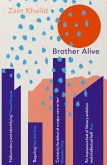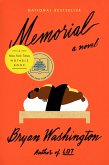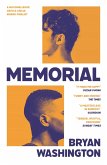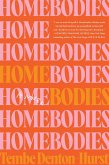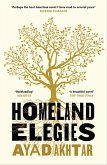From the winner of the NYPL Young Lions Fiction Award, CLMP Firecracker Award, and Bard Fiction Prize, National Book Award 5 Under 35 Honoree, and finalist for the NBCC John Leonard Prize, an astonishing debut novel about family, sexuality, and capitalist systems of control, following three adopted brothers who live above a mosque in Staten Island with their imam father
In 1990, three boys are born, unrelated but intertwined by circumstance: Dayo, Iseul, and Youssef. They are adopted as infants and share a bedroom perched atop a mosque in one of Staten Island's most diverse and underserved neighborhoods. The three boys are an inseparable trio, but conspicuous: Dayo is of Nigerian origin, Iseul is Korean, and Youssef indeterminately Middle Eastern. Youssef shares everything with his brothers, except for one secret: he sees a hallucinatory double, an imaginary friend who seems absolutely real, a shapeshifting familiar he calls Brother. Brother persists as a companion into Youssef's adult life, supporting him but also stealing his memories and shaking his grip on the world.
The boys' adoptive father, Imam Salim, is known in the community for his stirring and radical sermons, but at home he often keeps himself to himself, spending his evenings in his study with whiskey-laced coffee, reading poetry or writing letters to his former compatriots back in Saudi Arabia. Like Youssef, he too has secrets, including the cause of his failing health and the truth about what happened to the boys' parents. When, years later, Imam Salim's path takes him back to Saudi Arabia, the boys, now adults, will be forced to follow. There they will be captivated by an opulent, almost futuristic world, a linear city that seems to offer a more sustainable modernity than that of the West. But this conversion has come at a great cost, and Youssef and Brother too will have to decide if they should change to survive, or try to mount a defense of their deeply-held beliefs.
Stylistically brilliant, intellectually acute, and deft in its treatment of complex themes, Brother Alive is a remarkable debut by a hugely talented writer that questions the nature of belief and explores the possibility of reunion for those who are broken.
In 1990, three boys are born, unrelated but intertwined by circumstance: Dayo, Iseul, and Youssef. They are adopted as infants and share a bedroom perched atop a mosque in one of Staten Island's most diverse and underserved neighborhoods. The three boys are an inseparable trio, but conspicuous: Dayo is of Nigerian origin, Iseul is Korean, and Youssef indeterminately Middle Eastern. Youssef shares everything with his brothers, except for one secret: he sees a hallucinatory double, an imaginary friend who seems absolutely real, a shapeshifting familiar he calls Brother. Brother persists as a companion into Youssef's adult life, supporting him but also stealing his memories and shaking his grip on the world.
The boys' adoptive father, Imam Salim, is known in the community for his stirring and radical sermons, but at home he often keeps himself to himself, spending his evenings in his study with whiskey-laced coffee, reading poetry or writing letters to his former compatriots back in Saudi Arabia. Like Youssef, he too has secrets, including the cause of his failing health and the truth about what happened to the boys' parents. When, years later, Imam Salim's path takes him back to Saudi Arabia, the boys, now adults, will be forced to follow. There they will be captivated by an opulent, almost futuristic world, a linear city that seems to offer a more sustainable modernity than that of the West. But this conversion has come at a great cost, and Youssef and Brother too will have to decide if they should change to survive, or try to mount a defense of their deeply-held beliefs.
Stylistically brilliant, intellectually acute, and deft in its treatment of complex themes, Brother Alive is a remarkable debut by a hugely talented writer that questions the nature of belief and explores the possibility of reunion for those who are broken.
Dieser Download kann aus rechtlichen Gründen nur mit Rechnungsadresse in A, D ausgeliefert werden.



